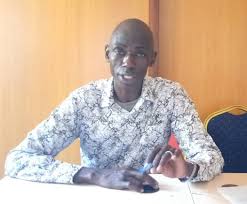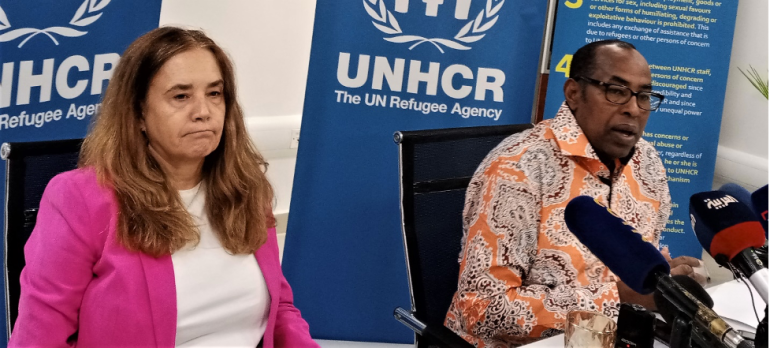Tens of thousands of returnees in Malakal and Renk are living in extremely deplorable conditions amid funding shortfall for humanitarian response.
Mohamed Abdi Affey, the visiting United Nations High Commissioner for Refugees (UNHCR) Special Envoy for the Horn of Africa, said the returnees and refugees who fled ongoing conflict in neighboring Sudan are lacking food and water, sanitation and health services (WASH) putting them at risk of water-borne diseases such as Cholera.
“We managed to visit a reception center in Malakal where what we saw really is quite devastating in terms of the situations of the people who have returned and the conditions they continue to live in is not acceptable as we saw it,” Affey said during press conference held in Juba on Thursday.
He said about 2000 South Sudanese, Sudanese and other nationalities are arriving daily in the border town of Renk for safety and sanctuary.
Affey said they are engaging with development partners and the private sector to foster seamless integration and inclusion of refugees, returnees and internally displaced persons (IDPs).
Marie-Helene Verney, the UNHCR Representative in South Sudan, said they received only 20 percent of the 96 million U.S dollars emergency funding able to cover the month of April till July.
“Since mid-April it has been a struggle for the country to receive South Sudanese who are fleeing the conflict in Sudan, the situation in Renk where we have been getting really on an average 2,000 people a day arriving since mid-April is very difficult,” Verney said.
“The challenge is how we move people from Malakal to Bor, to Juba and to Unity state. The other problem is that they (returnees) arrive in Renk in a state that is getting worse and worse the more the conflict in Sudan goes on. We are seeing people arriving in Renk that are malnourished,” she added.
Albino Akol Atak, the Minister of Humanitarian Affairs and Disaster Management, said they are expecting the number of people to exceed the 500,000 mark by the end of this year if the conflict continues.
South Sudan now hosts more than 150,000 returnees, including refugees who fled fighting in Sudan across the 12 border crossing points, according to the United Nations.
The fighting, which erupted in the Sudanese capital of Khartoum on April 15 and soon spread to different parts of the country, is being fought between the Sudanese Armed Forces and the paramilitary Rapid Support Forces.
Both sides have accused each other of initiating the conflict.














